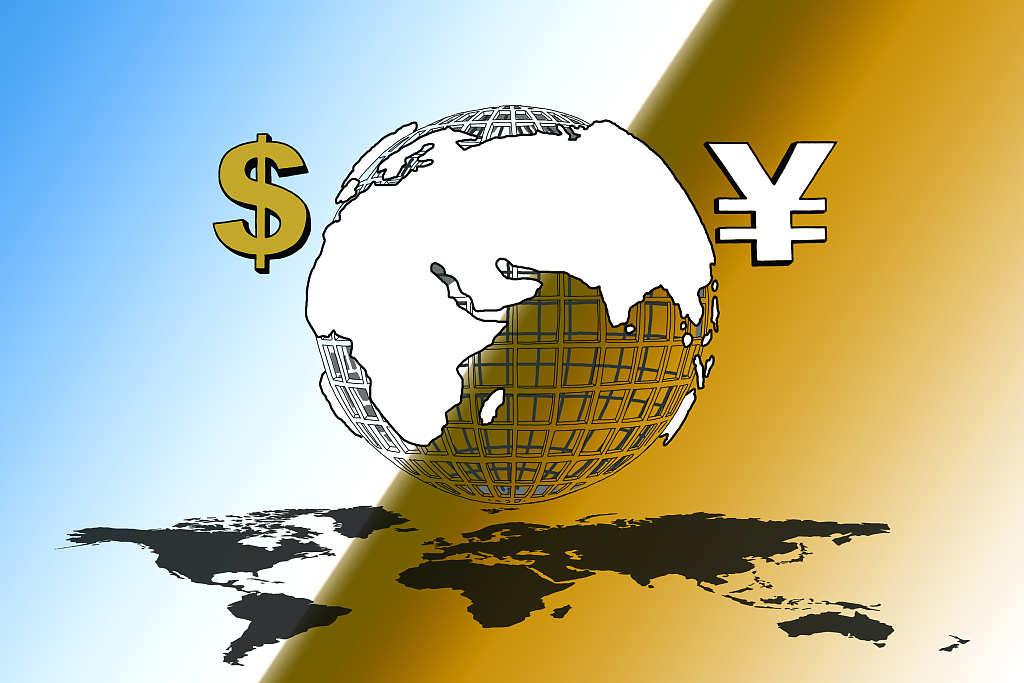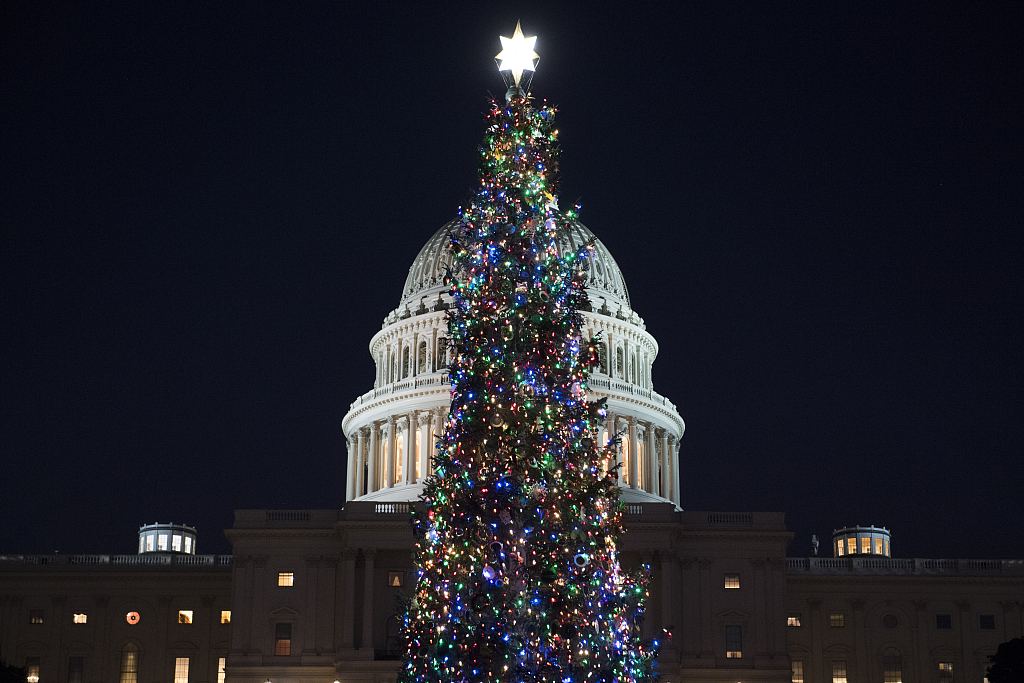
Analysis
16:17, 10-May-2019
Analysis: Playing "Taiwan card" is dangerous for the U.S.
Wang Xinyan

The U.S. House of Representatives on Tuesday passed the bill of "Taiwan Assurance Act of 2019" that reaffirms America's commitment to Taiwan by urging it to increase its defense spending, noting Washington should conduct “regular sales and defense articles” to Taiwan. It's a blunt violation of the one-China policy and the provisions of the three Sino-U.S. joint communiques, and has received serious warning from the Chinese Ministry of Foreign Affairs.
''The Taiwan Assurance Act cannot guarantee the safety of the Taiwan Strait," Huang Kuibo, vice president of the College of International Affairs at National Chengchi University, said in an article, as the bill "advocates that Taiwan be included in the U.S.-led military training exercise, and it is possible to go beyond the scope of the 'Taiwan Relations Act.' If the Chinese mainland regards this as a step toward the 'military alliance' of the United States, it may cause significant variables in the Taiwan Strait."
Huang is not alone in holding such a view. Su Meixiang, associate research fellow at Taiwan Institute of Fujian Academy of Social Sciences, told Global Times that the so-called act is based on the "America First" policy, regarding Taiwan as a "tool" to promote its "India-Pacific strategy" and achieves the goal of "constraining China with Taiwan," which is bound to increase cross-Strait tensions.
China Review in Hong Kong observed that the current strategic goal of the United States is hoping that the Taiwan Strait will become a battlefield to change China's strategic goal of peaceful development and delay China's development and rise. However, as a strategic "chess" of the United States, once Taiwan loses its autonomy, there is no other choice. It can only act in accordance with the wishes and the interests of the United States.

VCG Photo.
VCG Photo.
"(Taiwan's leader) Tsai Ing-wen and the Democratic Progressive Party are proud to enter the U.S.' India-Pacific strategic alliance and hoping to achieve the goal of 'Unite U.S. to fight against China,' but at the same time put themselves and Taiwan in a dangerous situation," said China Review.
The U.S. Congress has passed a number of resolutions related to Taiwan in recent years. Moreover, Taiwan is about to hold an election in 2020. Faced with another political party rotation, the United States has stepped up its efforts to intervene in Taiwan, trying to influence the candidate's policies and control the results of the election. The actions are becoming more and more explicit and continue to hit the bottom line of "one-China" policy.
There is no doubt that the United States has taken cross-Straits relations as a strategic fulcrum and wants to increase its chips in bilateral relations by playing the "Taiwan card."
However, it is a dangerous gamble and will cost a lot for the U.S. to play the game.
First, the U.S. should consider the cost of dealing with such a crisis. U.S. officials and scholars have clearly warned that it is not worth it for the United States to be involved in Taiwan. If there is a crisis in the Taiwan Strait, the United States may need to "assist" Taiwan, which will lead to a new Cold War and even a conflict with the Chinese mainland.

The U.S. Capitol Christmas Tree is displayed on the West Front of the Capitol on December 10, 2018. /VCG Photo.
The U.S. Capitol Christmas Tree is displayed on the West Front of the Capitol on December 10, 2018. /VCG Photo.
However, if the United States allows Taiwan to face itself, it will undermine the credibility of the United States and affect the support of the U.S. allies for the alliance, according to Su Xiaohui, deputy director of the Institute of International Strategy at the China Institute of International Studies on People's Daily.
Second, history has proved that cooperation benefits both China and the U.S. while conflicts would hurt both sides. Sino-U.S. relations are one of the most important bilateral relations in the world today. Maintaining the stable development of Sino-U.S. relations is not only in the fundamental interests of the two countries and the two peoples, but also the universal expectation of the international community. The United States deliberately challenges the bottom line of the Taiwan issue, exacerbates the complexity and uncertainty of Sino-U.S. relations, and undermines the cooperation between the two countries in important areas, harming others and hurting itself.
The Taiwan issue concerns China's core interest, and both Chinese government and the Chinese people will not allow any other country to point fingers at China's internal affairs. Therefore, the U.S. should stop intervening in Chinese domestic affairs and mind their own business.
(If you want to contribute and have specific expertise, please contact us at opinions@cgtn.com)

SITEMAP
Copyright © 2018 CGTN. Beijing ICP prepared NO.16065310-3
Copyright © 2018 CGTN. Beijing ICP prepared NO.16065310-3